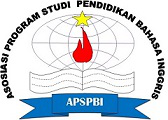THE EFFECTIVENESS OF INTERCULTURAL COMMUNICATIVE LANGUAGE TEACHING (iCLT) MODEL FOR LEARNING INTERCULTURAL COMMUNICATION: A CASE STUDY
Abstract
Abstract: This study to find out the effectiveness of the effectiveness of the intercultural communicative language teaching model (iCLT) in EFL students' learning experiences of intercultural communication. This study used qualitative research as Methodology and used in-depth information using a variety of data collection, such questionnaires and interviews as research design. The research of this study was held in the second semester in the academic year of 2020/2021. The data was taken from the third grade of of English Education Department on a Private University in Cirebon. The result showed that the the implications of teaching intercultural communicative language (iCLT) on intercultural communication, it can be concluded that most of the effectiveness of the iCLT model in intercultural communication learning is very positive. They gain new learning experiences, understand their own identity in relation to others, and do not adopt a new cultural identity. Even Though, there are still the strengths and weaknesses of each teaching step (Input Notice Practice Output) in the ICLT model. And each step of teaching is part of the ICLT model which aims to accommodate them to become intercultural speakers with ICC and be able to communicate and socialize effectively. and appropriate with other people from different cultures and countries.
Keywords: Intercultural Communicative Language Teaching(iCLT) Model, Intercultural Communication (IC), Teaching Step, Intercultural Communicative Competence (ICC), Intercultural.
Full Text:
PDFReferences
Newton, J. M. (2015). Intercultural Communicative Language Teaching: Implications for Effective Teaching and Learning. A Literature Review and an Evidence-based Framework for Effective Teaching.
Oranje, J. M. (2016). Intercultural Communicative Language Teaching: Enhancing awareness and practice through cultural portfolio projects.
Ortaçtepe, D. (2015). EFL Teachers’ Identity (Re)Construction as Teachers of Intercultural Competence: A Language Socialization Approach. Journal of Language, Identity & Education, 96-112.
Romanowski, P. (2017). Intercultural Communicative Competence in English Language Teaching in Polish State Collage. Slovenia.: Cambridge Scholars Publishing.
Sehlaoui, A. S. (2016). Developing cross-cultural communicative competence via computer-assisted language learning: The case of pre-service ESL/EFL teachers. Research in Learning Technology, 53-64. doi:10.1080/0968776010090306
Si, P. (2019). A Study of the Differences between EFL and ESL for English Classroom Teaching in China. International Journal of Education & Multidisciplinary Studies, 32-35.
Taylor, L. (2020). Case Study. International Encyclopedia of Human Geography, 95-100.
Thao, T. Q., & Tai, P. T. (2017). THE IMPORTANCE OF INTERCULTURAL COMMUNICATIVE COMPETENCE IN ENGLISH LANGUAGE TEACHING AND LEARNING. Ho Chi Minh: Research Gate.
Tran, T. Q., & SEEPHO, S. (2016). An Intercultural Communicative Language Teaching Model for EFL Learners. Teaching Methodologies and Learning.
Wang, Q., Syihabudin, & Mulyati, Y. (2018). Intercultural Communicative Language Teaching in China Highlight or Addendum? Education and Muslim Society, 155- 165.
Hamilton, A. B., & Finley, E. P. (2019). Qualitative methods in implementation research: An introduction. Psychiatry Research.
Jæger, K. (2001). The Intercultural Speaker: present-day requirements regarding linguistic and cultural competence. Sprogforum, 52-57.
Munezane, Y. (2019). A new model of intercultural communicative competence: bridging language classrooms and intercultural communicative contexts. Studies in Higher Education. doi:10.1080/03075079.2019.1698537
Nadeem, M. U., Muhammed, R., & S. D. (2019). Retesting integrated model of intercultural communication competence (IMICC) on international students from the Asian context of Malaysia. International Journal of Intercultural Relations, 17-29. doi:10.1016/j.ijintrel.2019.10.005
DOI: http://dx.doi.org/10.20527/jetall.v5i1.11814
Article Metrics
Abstract view : 325 timesPDF - 460 times
Refbacks
- There are currently no refbacks.
This journal is indexed in:


This Journal is listed in:
 Journal of English Teaching, Applied Linguistics and Literatures (JETALL)
Journal of English Teaching, Applied Linguistics and Literatures (JETALL)








.png)



1.png)
